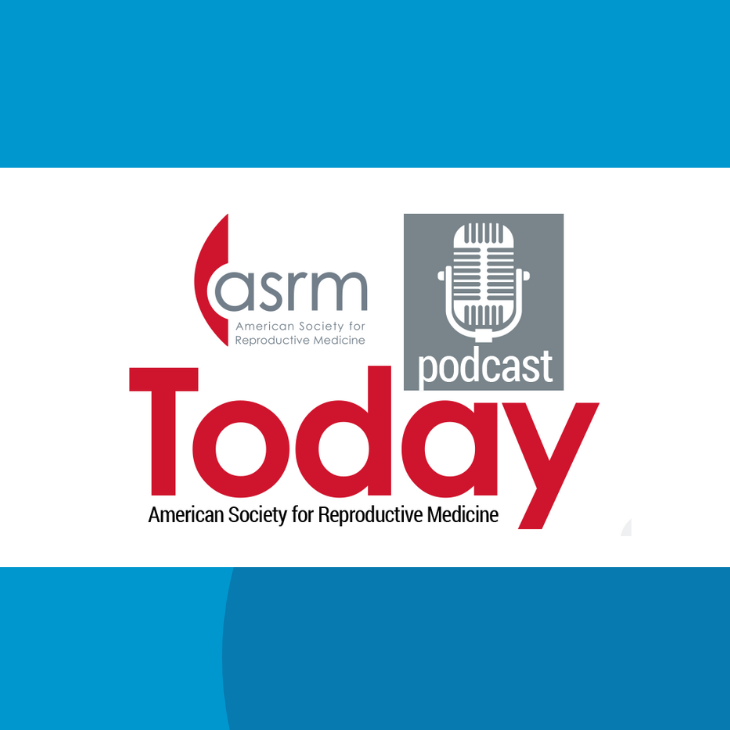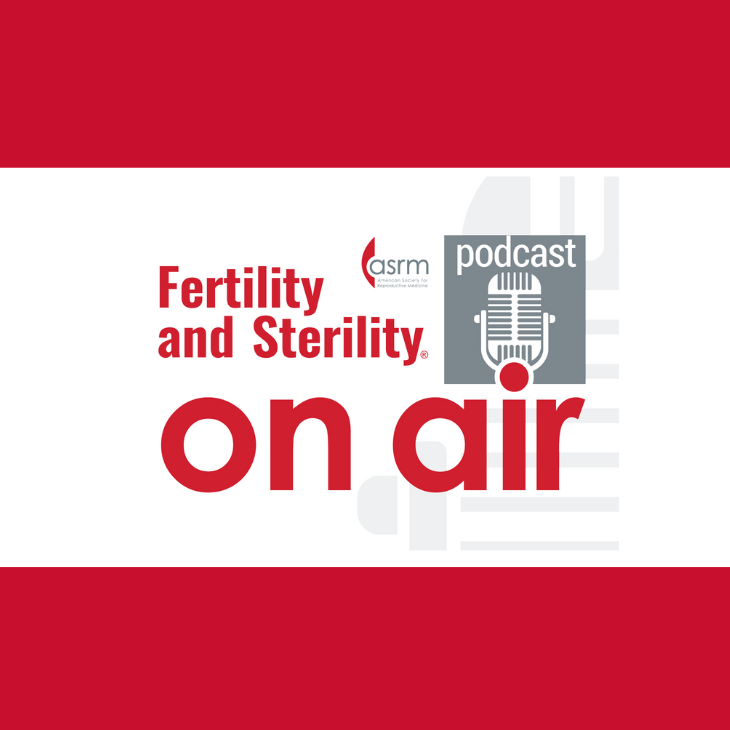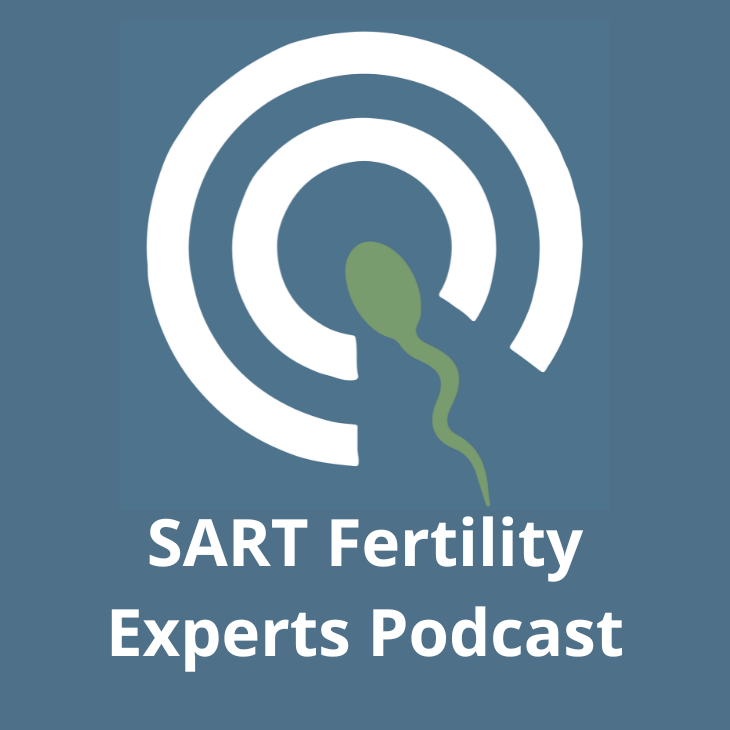
Transcript
Join us as this season we dive into the topic of Genetics. In this first episode, we'll explore how a 19th-century monk, working quietly in his garden, set the stage for a scientific revolution. Our guest this episode is Janine Gessner Mash, Director at Arbor Genetic Counseling.
Welcome to ASRM Today, a podcast that takes a deeper dive into the current topics in reproductive medicine. Welcome to ASRM Today, I'm your host, Jeffrey Hayes, and today we're going back to the beginning, to the very roots of genetics. In this first episode, we'll explore how a monk, working quietly in his garden, set the stage for a scientific revolution.
A quiet, scholarly man in a monastery garden is spending his days experimenting with pea plants. His name? Gregor Mendel. Mendel isn't a household name at the time, nor is he a famous scientist.
He's a monk with a passion for understanding how traits are passed down from one generation to the next. But what made Mendel's work so special? Let's step into that monastery garden for a moment. Here, Mendel is cross-pollinating pea plants with different traits.
Some are tall, others are short. Some have yellow peas, others have green. What Mendel discovers, through careful observation and record-keeping, is something profound.
Traits are passed down in a predictable way. He notices that some traits, like tallness, seem to dominate, while others, like shortness, can disappear in one generation, only to reappear in the next. Mendel called these factors heritable units.
Today, we call them genes. Now imagine the patience it took to manually cross thousands of pea plants, counting and categorizing every trait over multiple generations. It was meticulous work, but Mendel's results were clear.
He established the basic principles of dominant and recessive traits, which are now known as Mendel's Laws of Inheritance. But despite the groundbreaking nature of his work, Mendel's discoveries were largely ignored by the scientific community during his lifetime. His paper, published in 1866, gathered dust in scientific archives, while Mendel himself returned to his quiet life at the monastery.
He passed away in 1884, never knowing the impact his work would have. It wasn't until the early 1900s, more than 30 years later, that three scientists, working independently in Europe, rediscovered Mendel's work. They realized that Mendel had cracked the code of how traits are inherited.
The world of science was about to change, forever. To get some more insight, I asked my guest, Janine Gessner Mash, about Mendel. Let me ask you a small question, to get the ball rolling here.
How did Mendel change science with his genetic studies? Just a small question. Just a little question there. You know, obviously, kind of the bigger piece that happened was he was so observant and kind of breaking down these, you know, traits that he was observing.
And there was, of course, a big amount of luck in what he was selecting and what he was working on to even be able to observe those sorts of traits. But over time, once people started to realize his work, it basically became the foundation for which so much of genetics knowledge has been thrust off from. So those fundamental kind of, you know, discrete pieces of alleles and genes and all these things, which they did not have, like Mendel did not have terms for those at that time.
But he correctly identified these units, which then allowed for the rest of genetics to kind of really be built off of. So he didn't he didn't come up with the term genetics or was that a term that existed at the time? I don't think it existed at that time. And most of the words that we use around this did not exist at that time either.
He was saying words like traits or observations or, you know, color. He was describing those units, but they had yet to be, you know, given their scientific names like genotype, phenotype, allele, genes, those sorts of things. Now, is it is it true that his work was discovered later, posthumously? Yes.
Is that correct? You know, I'm not 100 percent sure if it was, but it was about 35 years after he had written his work when people finally started to kind of pick up on it. And then it took another 30 years before, kind of in that early 1930s, before he really got recognized as the grandfather, you know, really the father of genetics. Like that's when that kind of got enshrined.
So what other are there anything in reproductive medicine that we can thank Mendel for? Yeah, definitely. I mean, every time we run an expanded carrier screening panel, that's all Mendelian genetics, right? Every time someone comes to us for PGTM testing for their single gene disorder, whether it's dominant or X-linked or all of this, that all roots back to to Mendel and what he first kind of observed and discovered and wrote. You think, do you think hypothetically that Mendel could have anticipated any of the ethics, you know, that have come with like pre-genetic testing screening and all this? I mean, he was just basically he was dissecting beans, right? Right.
Yeah. Pea plants, right? Yeah. Yeah.
So he was looking off of plants. No, I don't think I don't even know if he necessarily was able to apply this into humans either, right? Because at this time in science, you know, animal, plant, human were very distinct groups, right? We didn't always think of them as being so interchangeable. But then as that thought process evolved, realizing that there was this really core transcript DNA that ran through all of life and that took time to discover and kind of really put together.
So when he was doing this work, it was really all about his pea plants, these traits that he could observe off of them and really calculating out those statistics. Would you would you say it's fair to say a lot of his work is philosophical? I actually think it's more discreet. I don't know if he was really philosophical about it.
I think it was kind of that really monotonous, laborious, like, I'm just going to replicate these experiments over and over and over again. And it was actually noticed in the 60s that it seems like some of this data was, you know, not necessarily recorded under scientific methods that we would use today. His statistics were a little too perfect.
They matched too much, too well. There's no control trial, you know, going on. It's just, you know, again, fair, right? We're in the 1800s.
He was a monk. He didn't have scientific training and background. So it was really just like funneling into, you know, that core monotony observation, doing the due diligence and then really making observations from that.
And I don't know how much philosophy really went into that piece at that point in time. Mendel's humble experiments in a monastery garden gave rise to the field of genetics and his laws of inheritance remain as relevant today as they were more than 150 years ago. From Mendel's peas to modern gene editing techniques like CRISPR, our understanding of life at its most fundamental level continues to evolve.
But Mendel's legacy endures. In future episodes this season, we'll dive deeper into genetics and reproductive medicine. But it all started here with a monk and his pea plants.
Thank you for joining me today on ASRM Today. I hope you've enjoyed this journey into the origins of genetics. Be sure to subscribe.
And if you like today's episode, leave us a review and share it with a friend. Until next time, I'm Jeffrey Hayes. This concludes this episode of ASRM Today.
For show notes, author information and discussions, go to ASRMToday.org. This material is copyrighted by the American Society for Reproductive Medicine and may not be reproduced or used without express consent from ASRM. ASRM Today series podcasts are supported in part by the ASRM Corporate Member Council. The information and opinions expressed in this podcast do not necessarily reflect those of ASRM and its affiliates.
These are provided as a source of general information and are not a substitute for consultation with a physician.
ASRM Today

ASRM Today: Genetics Bonus Episode - Inclusive Family History Project
Explore how inclusive family histories improve healthcare for donor-conceived and adopted individuals with new EHR standards and provider education tools.
ASRM Today: Genetics - Episode Nine
Explore ethics, identity, and humanity in a dystopian love story as ASRM Today discusses Never Let Me Go through the lens of genetics and reproduction.
ASRM Today: Genetics - Episode Eight
Explore ethical considerations in embryo transfer, PGTM, and genetic testing with Dr. Sigal Klipstein on ASRM Today’s genetics-focused podcast episode.


